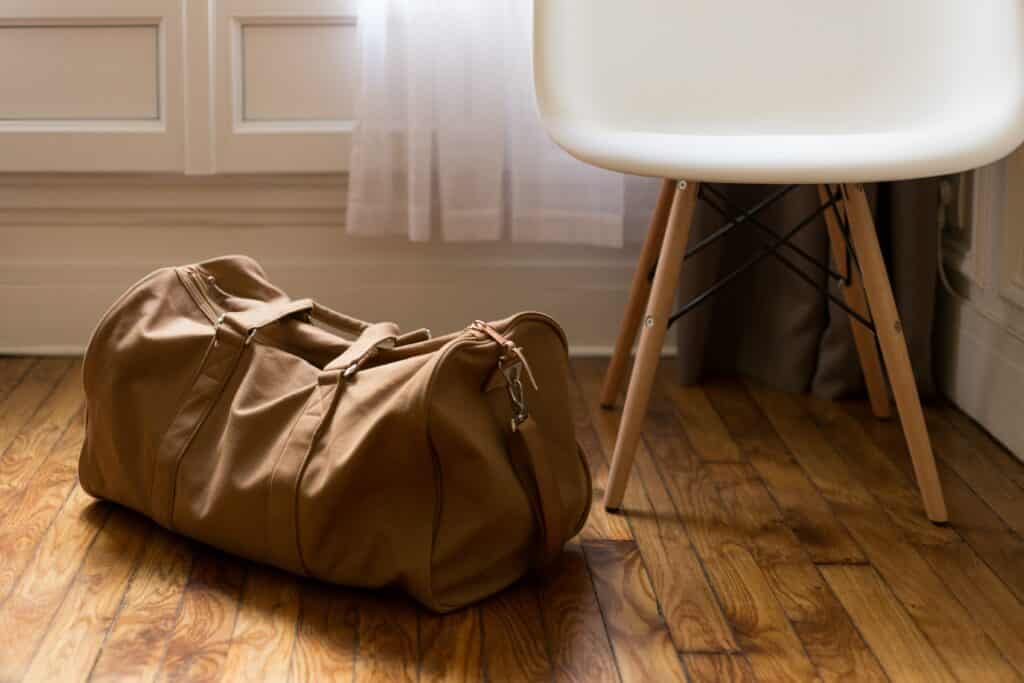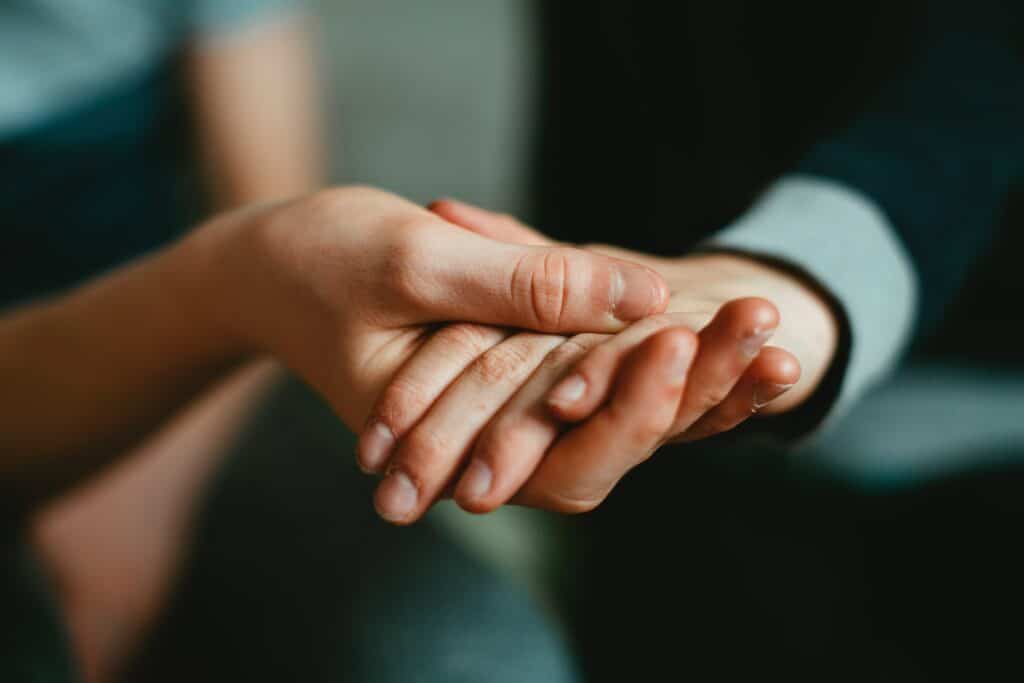Knowing what to bring to rehab and what you should leave behind can make a real difference to your comfort levels as you grapple with detox and recovery.
Data from the National Institute on Drug Abuse (NIDA) shows that roughly 2.5 million people seek addiction treatment in the United States each year.
For those with more severe substance use disorders and alcohol use disorders seeking residential treatment, heading to rehab can be overwhelming and stressful. Knowing what to take with you and what you should leave behind removes at least one concern in the lead-up to engaging with treatment.
You will find that all rehabs have strict policies outlining what you can bring to the treatment center, as well as listing any prohibited items. Your bags will be inspected during the admissions process to ensure your luggage is compliant with these guidelines.
While these policies may differ slightly, most rehab centers allow and prohibit broadly similar items.
What can you bring to rehab, then?
What Can I Bring to Rehab?
Here is a quick snapshot of some of the 10 vital things to take with you if you’re off to rehab:
- List of contact details for all those who will be involved in your treatment (12-step sponsors, healthcare professionals, loved ones)
- Prescription medications in original pharmacy bottles
- Small amount of cash in smaller bills
- Credit card or debit card
- Insurance cards
- ID (passport, driver’s license)
- Alarm clock with radio
- Journal or notebook
- Stamps and envelopes
- Reading material
Before we explore some of these areas more fully, what do most rehab centers prevent you from bringing to the treatment center?
What Should I Not Bring To Inpatient Rehab?
Rehabs have strict rules and prohibit certain items to create the safest environment most conducive to recovery. T-shirts emblazoned with drug references and illicit substances would run counter to this.
Most of the following items will be banned by most rehabs:
- Alcohol
- Drugs
- Prohibited prescription medications
- Pornography
- Weapons (guns, knives, scissors, sharp objects, etc.)
- Food
- Beverages
- Toiletries or beauty products containing alcohol (perfume, mouthwash)
- Nail-related products containing solvents
- Unapproved or opened OTC medications
- Revealing clothing (short skirts and shorts, tight or cropped tops, tank tops)
- Clothing referencing drug use, alcohol, or violence
- Sporting equipment
- Video games
- Games
- Playing cards
- DVDs
- TVs
- Gaming consoles
- Aerosols
- Candles
- Incense
Some rehab centers will allow you to bring your laptop and cellphone, but you will typically only have access at certain times. Your focus should be sharply on your recovery above all else.
Most rehabs will allow you to bring cigarettes and vapes, but there will normally be a limit on the amount you can bring with you.
You should always check with the treatment center before you check-in if you are in doubt about any component of your baggage.

Rehab Packing List
What to pack for drug rehab will vary from person to person, but the following rehab packing list accounts for all the essentials.
You will need to account for items from the following areas when packing for rehab:
- Toiletries and beauty products
- Clothing
- ID and documentation
- Prescription medications
- Reading and writing materials
Toiletries and beauty products
You should bring a supply of toiletries and beauty products to last you 30 to 90 days, depending on the length of the inpatient treatment program in question.
Ensure that none of the following products contain alcohol as one of the three primary ingredients.
Also, make sure all products are unopened.
Avoid all aerosol products.
Instead, bring all of the following and anything else specific to your needs:
- Deodorant
- Toothbrush
- Toothpaste
- Shampoo
- Conditioner
- Shaving products
- Feminine hygiene products
- Hairstyling products
- Comb or brush
- Sunscreen
- Lotion
- Balm
- Makeup
Clothing
You will find most rehabs have surprisingly rigid dress codes, so you should inquire about the restrictions in place to ensure you comply.
With access to laundry machines provided at most rehabs, aim for about a week’s worth of clothing since space will be at a premium. Pack clothes that are easy to care for, too.
To account for changes in weather, include layering options like T-shirts, cardigans, sweaters, and jackets.
As a packing list for clothes, consider the following:
- Underwear
- Socks
- Comfortable shoes
- Flip-flops for shower or pool
- T-shirts
- Shirts
- Sweaters
- Cardigans
- Pants
- Jacket
- Coat
- Shorts
- Belt
- Hat
- One or two smarter outfits
- Bathing suit (trunks for men, one-piece for women)
- PJs
- Bathrobe
- Slippers
ID and documentation
When considering what should I bring to rehab, don’t forget all of your important and relevant identification, including:
- Passport, driver’s license, or state-issued ID
- Prescription card
- Pharmacy card
- Health insurance card
Prescription medications
If you are regularly using any medications, make sure to pack the following:
- Prescription medications in original packaging
- OTC medications in original packaging
- Liquid medication in unopened packaging
- Sealed vitamins
You should also include a list of all your prescribed medications and the dosages to better inform your treatment team, crucial if you do not have access to your medications after check-in.
Some over-the-counter medications may be prohibited, as well as all medications containing alcohol, and all narcotic medications. Check with the rehab center before admission for specifics.
Reading and writing materials
You will find your days in rehab are highly structured. Between meals, most of your time will be filled with therapy, counseling, and group activities.
Reading can help you to relax and unwind and can also help you to manage stress. Pack plenty of books or a reading tablet for your stint in rehab.
Also, take a journal or notebook. Expressing your thoughts and feelings as you undergo the challenges of recovery from addiction can be both beneficial and cathartic.

Start Your Recovery Journey at Renaissance Today
If you are ready to commit to long-term sobriety, we can help you combat alcohol use disorder or substance use disorder here at Renaissance Recovery Center. Even better, you don’t necessarily need to pack your bags and head to inpatient rehab either.
Research shows that most mild and moderate substance use disorders respond favorably to outpatient treatment. Here at Renaissance, we also offer more intensive forms of outpatient treatment, including IOPs (intensive outpatient programs) and PHPs (partial hospitalization programs).
Our evidence-based programs will help you address the root cause of your addiction through psychotherapy like CBT (cognitive behavioral therapy) and counseling, both individual and group. We also offer MAT (medication-assisted treatment) if appropriate. FDA-approved medications can help minimize both cravings and withdrawal symptoms during detox.
When you leave Renaissance, you will have a relapse prevention plan in place and the aftercare you need to confidently navigate a return to daily living without the scourge of addiction to drink or drugs. Make that happen today by calling 866.330.9449.









